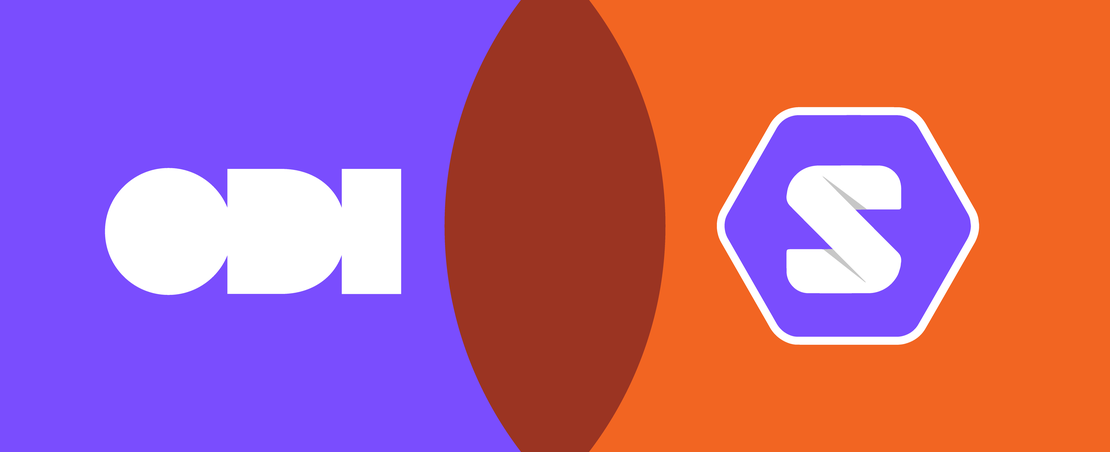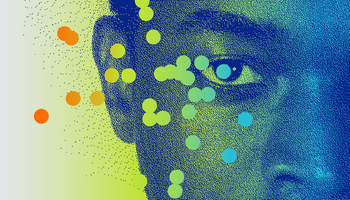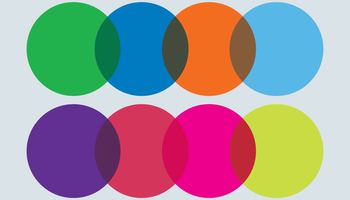
From October 2024, the ODI will bring Solid - an open standard developed to give individuals and organisations greater control over their data - into its broader data stewardship activities. The Solid project, protocol, and community will now become part of the ODI’s activities to promote secure, ethical data sharing and build a more transparent, secure, and user-centric data ecosystem.
What is Solid?
Solid is an open standard for managing digital identities and storing personal data for re-use across applications on the Web. The goal of Solid is for people to have more agency over their data. Solid is a project, a specification, and a movement for a user-centric data storage system. Data is hosted in people’s Personal Online Data Stores (Pods). Through Solid, control over what happens to people’s data is now "distributed" back to the user, so Solid is a user-centric rather than a decentralised technology. Data in Solid is centralised around users instead of centralised around applications. The data is distributed, making it scale better. Solid decentralises control and governance, but not the data itself. Solid was initially developed by Sir Tim Berners-Lee, his team at MIT, and their collaborators. At its core, Solid allows individuals to store their data in Pods, allowing them to control how, when, and with whom their data is shared. This approach shifts the focus from centralised data platforms—where third-party applications often hold the power—back to the individuals whose data is in question.
Solid's unique technology integrates seamlessly with various applications, enabling users to retain full ownership and control over their data while ensuring it can be shared securely and ethically. In practical terms, a Solid Pod operates similarly to services like Dropbox or Google Drive, but with a critical difference: applications can access the data within the Pod, allowing individuals to dictate what is shared and with whom. This decentralised control creates transparency and trust, which are vital in today’s digital world.
Why is the ODI Involved?
The ODI's involvement with Solid is a natural extension of its work across the data spectrum, from open to shared to closed data. While open data remains a vital foundation for transparency and accountability in data infrastructure, not all data can—or should—be open. Solid offers a protocol for managing sensitive data, allowing for individual privacy while enabling secure data sharing. The ODI’s expertise in privacy-enhancing technologies (PETs), data governance, and responsible data stewardship perfectly aligns with Solid's goals.
By integrating Solid into its activities, the ODI will further explore models of user-centric data governance that give individuals greater agency over how their data is used. This approach reflects the ODI’s long-held belief that ethical data use benefits individuals, society and the economy. Solid enables this vision by giving users fine-grained control over their data, ensuring it can be shared securely and responsibly.
A proven model for ethical data use
Solid’s user-centric model decentralises control over data and addresses many privacy challenges by giving individuals granular agency over their data. In practical terms, Solid has already shown its potential through Inrupt, which has provided enterprise-grade Solid software for projects, including with the government of Flanders and pilots with the likes of the NHS in Greater Manchester.
The ODI is looking forward to building on the work of the Solid Community and Inrupt’s deployments at a time when public trust in data governance continues to erode, and the need for technologies like Solid becomes more urgent. A recent study shows that only 11% of global citizens trust their governments to protect their privacy. Solid helps rebuild trust by offering individuals greater control over their data while providing organisations with secure, user-approved access to the information they need for innovation and decision-making.
Supporting the ODI’s 2023-2028 strategy
This new relationship between the ODI and Solid is aligned with the ODI’s 2023-2028 strategy, which responds to global challenges like the increasing demand for privacy, technological change, and the need for cross-border data flows. By bringing Solid into its ecosystem, the ODI will continue building a strong, ethical data infrastructure that can scale across industries and geographies, ensuring that data is used in ways that benefit everyone.
Solid also supports the ODI’s principles of data inclusivity and equity. By enabling individuals, particularly those from underrepresented communities, to control their data, Solid helps reduce the power imbalances that have long been prevalent in the data economy. This partnership will strengthen the ODI’s commitment to creating a world where data is stewarded responsibly and fairly.
What’s next?
The ODI will work with the Solid project, specification, and dedicated volunteers to build a more transparent, secure, and user-centric data ecosystem. This partnership is not just about technology—it’s about shaping the future of data governance in ways that respect privacy, empower individuals, and promote responsible data use across sectors.
As Solid continues to evolve through its open-source community, the ODI’s stewardship will help ensure that user-centric data models - like Solid - become a central part of the global data ecosystem, benefitting individuals, businesses, and society.
For more information, contact [email protected]


